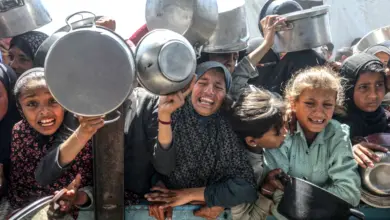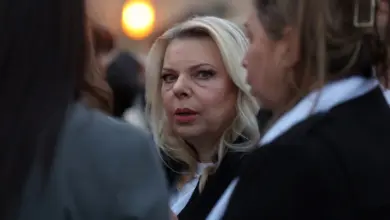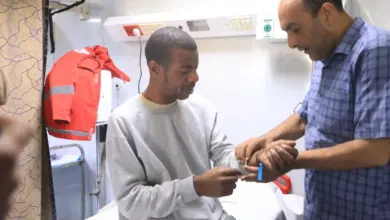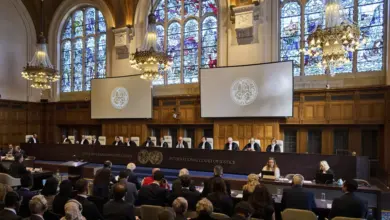WASHINGTON, D.C. — At a high-profile conference hosted by an America-based pro-Israel lobbying group, a panelist said that Christians in Egypt face extinction and that the Coptic minority should consider teaming up with Israel to pursue common interests.
“The fate of Christianity, and ultimately of all religious minorities in the Islamic world, is at stake,” said Nina Shea, director of the Hudson Institute’s Center for Religious Freedom and a panelist at the conference. “And I would add to say that of Israel and the West is also at stake.”
The policy conference for the American-Israel Public Affairs Committee, which works to advance Israel's interests in Washington, also hosted US President Barack Obama and Israeli Shimon Peres the day before. In his speech, Obama said Israel and the US are bound together by their shared interests of security for their communities and prosperity for their people.
The conservative, pro-Israel lobbying organization AIPAC, which kicked off its annual policy conference in Washington DC on 4 March, is one of the most powerful lobbying groups in the United States. This year, a record 13,000 guests — mostly American Jewish participants — are attending the conference.
Charles Dunne, director of Middle East and North Africa programs at Freedom House, also participated in the panel. Dunne currently faces indictment in Egypt for his role in the ongoing dispute surrounding illegal foreign funding to NGOs — or, in his own words, “for simply opening an office there.”
Shea and Dunne made their comments during a panel discussion entitled “Civil Society? The State of Human Rights in the Arab World,” though the talk largely focused on the situation for Copts since the resignation of former President Hosni Mubarak.
According to Shea, the situation of Egypt’s Copts has worsened since Mubarak’s ouster in February 2011. They face “a threat that is existential,” she said, and “live in perpetual fear.”
“I recently talked to Orthodox and Protestant leaders in Egypt, and both groups told me that all who can are leaving, that there is an exodus of anybody with a green card or anybody who has any chance of trying to ask for asylum at this point. Of course, with 10 million Coptic Christians, most of them will not be able to leave,” Shea said.
She also compared the situation of Copts in Egypt to the situation of Christians in Iraq, also drawing similarities with the historical Jewish community's flight from Iraq.
Shea contended that Copts and the pro-Israel community could potentially band together to pursue common interests, in response to a rabbi's question about forming alliances with the Copts in Philadelphia. "The Copts need to be enlightened on this," she said, regarding support for Israel.
Dunne was less pessimistic than his colleague about the prospects of Copts in post-Mubarak Egypt. In response to a question about whether repression of the Christians was popular among Muslims, Dunne said most Egyptians seemed to prefer “keeping them in their place and essentially sweeping [issues of discrimination] under the rug.”
The two also claimed to have an extensive understanding of what they said is the other political threat the Coptic community faces, from the ruling military council.
She described last year’s Maspero massacre in gruesome detail, and said that 14 Copts were killed when crushed under the “treads of [the military’s] tanks.” State media calls on Egyptians to defend the army “stirred a lot of Muslims to come down and fight.”
“The United States and the West will have a very difficult time pointing out religious freedom violations if Egypt no longer has our shared values, and that will be lost as long as there are no non-Muslims living in Egypt,” she said.
Both Dunne and Shea declared their support for a review of foreign aid in order to pressure the Egypt’s government.
“This has to be conditional,” she said. “Peace with Israel, but also peace with their own minorities and women.”
For his part, Dunne said the US policy of giving aid to Egypt “has basically been on autopilot.” He said that during his tenure at the State Department, Egyptian authorities treated the funds as an “entitlement.”
“It’s your money,” he said, addressing the audience. “You have a right to say how that money should be spent. It should be spent to advance freedom and democracy in Egypt.”
Shea said that the Copts are important to the US “because they are a moderating influence in Egypt. They believe in women’s rights, they are against the imposition of Sharia, they stand for Western education, and they are also the moderators between East and West.”




